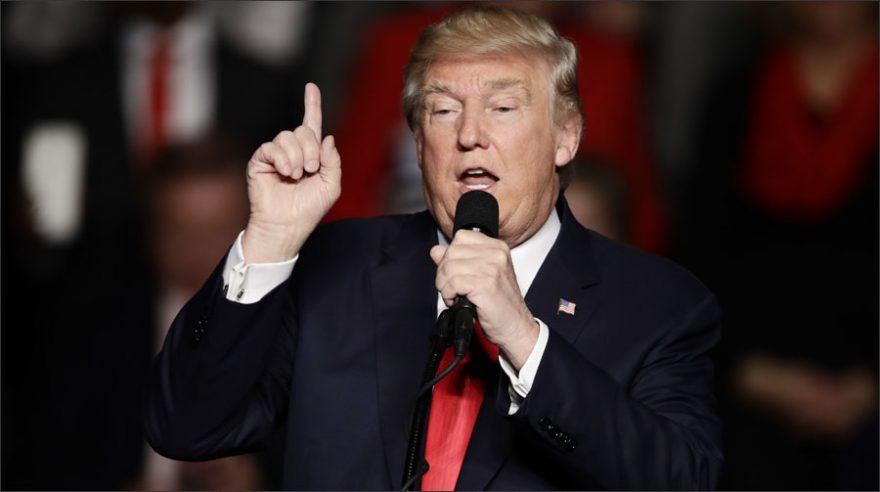Will Trump Try to Dismantle ‘Net Neutrality?’

One of the least understood, yet most important policies the Trump administration will have the power to shape is “net neutrality,” the idea that all internet content should be treated equally, regardless of the source.
And a number of consumer advocacy groups are growing increasingly worried that the president-elect will try to dismantle the concept of neutrality, which supporters say is essential to guaranteeing that the internet has a free and open flow of web-based material.
Without net neutrality, school and ed-tech organizations fear that internet service providers could throttle or slow down content to schools, while fast-tracking delivery of content by commercial interests that can afford to pay more.
Additionally, some startup ed-tech providers have said they rely on a level playing field for delivering online content to schools, a status that could be undermined if big, moneyed providers receive special treatment.
Last year, the Federal Communications Commission handed a huge victory to backers of net neutrality by approving regulations on Internet service providers. The FCC’s policy, approved on a 3-2, party-line vote with Democrats prevailing, banned internet service providers from engaging in paid-prioritization—in effect, putting some of that content in the so-called fast-lane. It also prevented them from blocking or slowing service, among other provisions.
In the run-up to the vote, net neutrality improbably achieved pop-culture status, with champions like TV personality John Oliver urging viewers to rise up in its defense. The FCC said it received a record 4 million public comments on the issue.
The FCC originally crafted rules on net neutrality in 2010, but they were legally challenged by Verizon, which argued that federal officials were exceeding their authority. In 2014, a federal court ruled that the FCC had gone too far. The agency’s recent net neutrality protections, approved Feb. 26, 2015, on were an attempt to respond to the restriction of that ruling and put open internet provisions on solid legal footing.
All five members of the FCC, including the chairman, are appointed by the president, though no more than three can be from any one party. President Obama appointed chairman Tom Wheeler, a former business executive who wound up fashioning the strong net neutrality protections approved by the commission. (Wheeler announced his plans to resign from the post next month, as Obama leaves office.)

In an interview with Education Week in 2014, the year before the FCC voted in favor of protecting net neutrality, Wheeler made a strong argument in favor of ensuring an unrestricted flow of online content.
“The open internet is open. Period,” Wheeler said, adding, “Educational content is what is driving the need for [better connectivity, ] which is—guess what—going to drive better educational content…And we are not about to let anyone get into that and disadvantage schools by playing around with the ability of schools to get open access to everything that’s on the internet.”
Eye on Advisers
Trump will get to appoint the FCC chairman and the commission’s majority. Consumer groups believe the Republican signaled his intentions on net neutrality through his appointment of Jeffrey Eisenach and Mark Jamison, both of whom have ties to the telecommunications industry, to his “Agency Landing Team” focused on the FCC. Roslyn Layton, who has also voiced public criticism of net neutrality, is another member of that team.
Jamison is a former lobbyist for Sprint, as was recently reported by USA Today. In an editorial published last year in the Gainesville Sun, Jamison and Layton argued that the FCC had overstepped its duties in approving neutrality roles, to the detriment of businesses and the public. It urged Congress to take action to clarify the commission’s “mission and responsibilities.
“[T]he unilateral approach pursued by the FCC to impose such rules forces industry and consumers to incur unnecessary litigation costs and to operate in an uncertain environment,” they wrote, “It is also possible that the FCC’s risky path may result in net neutrality rules being struck down all together.”
Eisenach has described net neutrality as “the very definition of crony capitalism” which allows “one group of private interests to enrich itself at the expense of another” in an article written for the American Enterprise Institute, which employed him. The New York Times had reported that some of Eisenach’s work at AEI was supported by Verizon and a wireless trade group.
What little is known about the Republican’s view of the issue has been taken from a tweet he posted in 2014—before he declared his candidacy—in which he blasted the idea as partisan:
Obama’s attack on the internet is another top down power grab. Net neutrality is the Fairness Doctrine. Will target conservative media.
— Donald J. Trump (@realDonaldTrump) November 12, 2014
The Fairness Doctrine was a policy adopted by the FCC in 1949 stating that broadcast outlets using licenses issued by the agency needed to allow airing of opposing views, including political ones. The policy was challenged repeatedly in the ensuing years on 1st Amendment grounds, until the FCC revoked it in 1987. In 2011, the FCC formally removed language supporting the doctrine.
During his campaign and as president-elect, Trump floated numerous false statements and baseless claims via tweets and other means. And despite Trump’s claim about net neutrality, there is no link between the FCC’s actions on net neutrality and the fairness doctrine, or any effort to silence any political party, said Timothy Karr, the senior director of strategy for Free Press, a group that supports net neutrality. Many commentators who have studied the Fairness Doctrine and net neutrality agree.
Trump’s claim amounts to an “incoherent reading of the rules,” said Karr.
An FCC majority appointed by Trump would have a number of options for weakening net neutrality, Karr said. The commission could launch an effort to change the existing policy, or it could refuse to enforce it or take a “passive stance,” in cases where providers were accused of slowing service. (FCC officials declined to comment how net neutrality might change under Trump.)
Another option would be for a Republican-controlled Congress to approve a law weakening net neutrality protections. But going that route could require a drawn-out, bruising fight.
Fears among school officials—many of whom work in districts which already struggle with poor connectivity and a lack of access to technology—about losing easy access to online content are “quite legitimate,” Karr said.
Weakening net neutrality gives internet service providers “the power to pick and choose what kinds of content gets privileged over their networks,” he said. Content from the biggest companies with the resources to pay what telecoms demand, he said, will have an advantage, and those that don’t will likely lose out.
The school community will know more about Trump’s views of net neutrality when he takes office Jan. 20.
Photo: President-elect Donald Trump speaks during a rally at the Giant Center, Thursday, Dec. 15, 2016, in Hershey, Pa. Photo by Matt Rourke/ AP. Photo of Tom Wheeler by Stephen Voss for Education Week.
See also:
